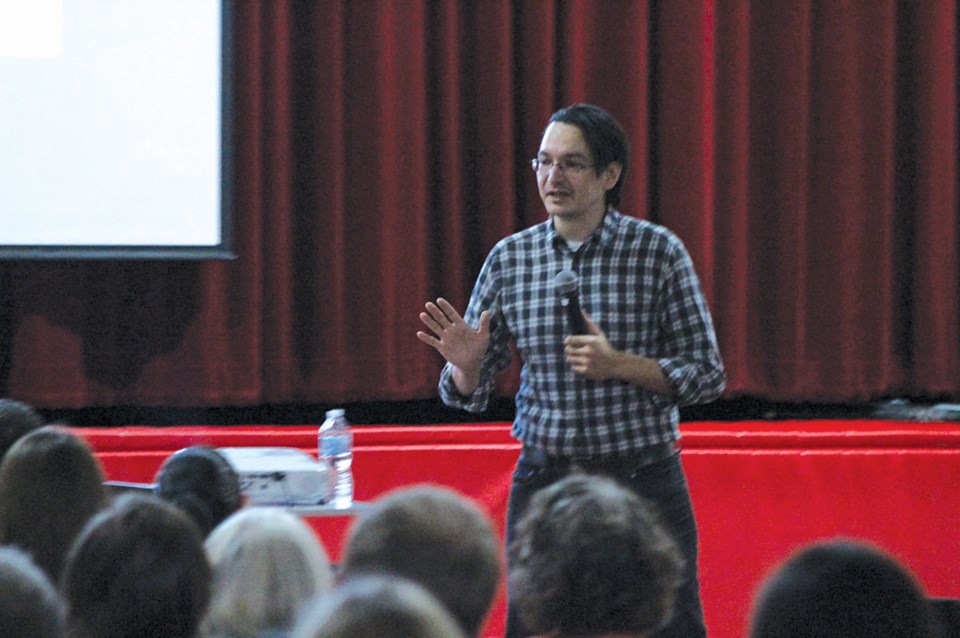It’s a complicated discussion, but in today’s Canada, it is vital: how can Canada reconcile its history with indigenous people?
Kevin Lamoureux, the national education lead for the Winnipeg-based National Centre for Truth and Reconciliation, spoke to a crowd at Hapnot Collegiate on Sept. 27 to mark Orange Shirt Day – an event devoted to remembering indigenous issues, the history of colonization and promoting reconciliation.
In his speech, Lamoureux outlined the lasting impact of the Indian Act and residential schools, the effect of missing and murdered indigenous women and girls on communities, and how the unfulfilled promises of historic treaties affect all Canadians.
“Many Canadians have either forgotten or never had the opportunity to learn that we are a nation that began as a partnership,” said Lamoureux.
“If we’re honest with ourselves, not every nation on Earth can lay claim to that kind of history. Most nations on Earth began with bloodshed and conquest and warfare and human rights violations. Certainly, Canada has many dark moments in its past, but at its beginning, we are a country that began as a coming together of people.”
Lamoureux, who is of Ukrainian descent on his mother’s side, talked about an uncle and his attitudes towards his indigenous neighbours.
Lamoureux remembers his uncle saying: “Why don’t they just work the way we worked?”
Lamoureux described how, as hard as his family worked, one of the things they never worked against was the negative impact of the Indian Act.
“We were allowed to own the land we were farming,” said Lamoureux.
Under the Indian Act, First Nations people living on reserve do not own the land they live on and are unable to increase the value of their property.
While Lamoureux’s Ukrainian uncle was able to expand his farm, buy new equipment and build equity, his indigenous neighbours were limited from doing the same.
“That whole time when we were on that journey, our First Nations neighbours didn’t have the opportunity access to any of that,” he said.
Lamoureux said his family member’s lack of understanding was not due to intentional ignorance or racism; he argued that it was due to not being exposed to the ideas or issues of indigenous life.
“He’s a good man,” Lamoureux said of his uncle. “If you met him, you would like him. I like him. I respect him. He’s a hard-working, loving man who believes he’s doing what’s best for his family. He grew up never having the opportunity to hear about that other group of people,” he said.
“The worst thing I could do, if I wanted to change his heart and his mind, is to enter into a conversation where I wag my finger at him and tell him he’s wrong. That’s not how we combat racism – we don’t solve a problem with the same mindset that created them.”
Lamoureux discussed how society can promote intergenerational and intercultural understanding and knowledge of Indigenous history and culture. He told the crowd it was vital to be aware of the root causes of indigenous issues, but also important to look forward.
“We don’t get to just pick the good parts about being Canadian while ignoring the bad parts,” he said, “But this is the Truth and Reconciliation Commission, not the guilt and shame commission.”
Lamoureux said that initiatives like Orange Shirt Day and offering indigenous studies courses at universities were part of increasing intercultural understanding.
“It’s not just a one-off event. We don’t want that. We want the goodwill created by Orange Shirt Day to continue into action,” he said.
“We’ve got a beautiful path ahead of us.”




